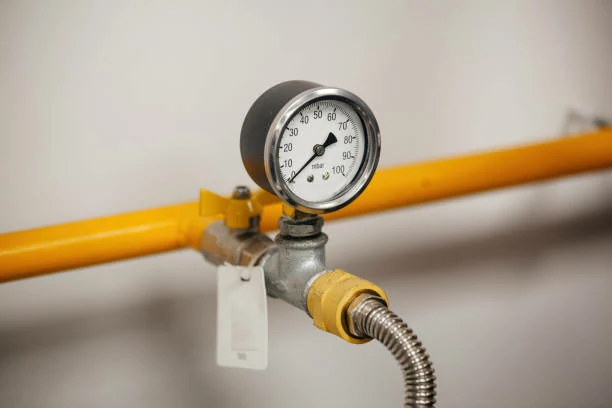Durability and Material Selection of Gas Fittings
Importance of Durability in Gas Fittings
Gas fittings play a crucial role in maintaining the integrity and safety of gas pipeline systems. Durability ensures long-term performance and reliability. Durable fittings prevent leaks, withstand high pressure, and resist corrosion. Selecting the right materials for gas fittings is essential for achieving these durability standards.
Common Materials Used in Gas Fittings
Brass
Brass is widely used in gas fittings due to its excellent corrosion resistance and durability. It can withstand high pressures and temperatures, making it suitable for various applications. Brass fittings are also relatively easy to manufacture, which keeps costs reasonable.
Copper
Copper offers high durability and excellent thermal conductivity. It resists corrosion and can handle high-pressure conditions. Copper fittings are often use in residential gas systems due to their reliability and longevity.
Stainless Steel
Stainless steel is known for its exceptional strength and corrosion resistance. It can endure extreme temperatures and pressures, making it ideal for industrial and commercial gas systems. Stainless steel fittings are more expensive but offer superior performance and longevity.
Plastic (Polyethylene)
Polyethylene (PE) fittings are use in low-pressure gas applications. They are lightweight, easy to install, and cost-effective. However, PE fittings are not as durable as metal fittings and are typically use for specific applications where high pressure is not a concern.
Factors Influencing Material Selection
Corrosion Resistance
Corrosion can weaken fittings, leading to leaks and failures. Choosing materials with high corrosion resistance, such as stainless steel and brass, ensures longevity and reliability. For applications where corrosion is a significant concern, using fittings with protective coatings or anodizing can further enhance durability.
Pressure and Temperature Ratings
Different materials have varying capabilities to withstand pressure and temperature. Brass and stainless steel fittings are suitable for high-pressure and high-temperature applications. Polyethylene fittings are better suited for low-pressure applications.
Compatibility with Gas Types
The type of gas being transported can influence material selection. Natural gas and propane systems have different chemical properties that can affect fittings. Brass and stainless steel are generally compatible with most gases, while specific applications may require specialized materials.
Installation Environment
The environment where the fittings will install plays a significant role in material selection. For outdoor installations, materials that can withstand weathering and environmental factors, such as stainless steel, are prefer. Indoor installations may have more flexibility in material choice.
Cost Considerations
While durability is crucial, cost also plays a role in material selection. Brass and plastic fittings are more cost-effective but may not offer the same level of durability as stainless steel. Balancing cost and performance is key to making the right choice.
Enhancing Durability of Gas Fittings
Regular Maintenance and Inspection
Routine maintenance and inspections can identify potential issues before they become major problems. Regularly checking for signs of corrosion, wear, and leaks ensures fittings remain in good condition. Implementing a maintenance schedule helps extend the lifespan of gas fittings.
Proper Installation Techniques
Using proper installation techniques ensures fittings are secure and function correctly. This includes using the right tools, following manufacturer guidelines, and ensuring connections are tight and leak-free. Proper installation prevents unnecessary stress on fittings, enhancing their durability.
Protective Coatings and Treatments
Applying protective coatings or treatments to fittings can enhance their resistance to corrosion and wear. Anodizing, galvanizing, and applying epoxy coatings are common methods to protect metal fittings. These treatments add an extra layer of defense against environmental factors.
Choosing the Right Size and Type
Selecting the correct size and type of fitting for the specific application ensures optimal performance. Using undersized or inappropriate fittings can lead to stress and failure. Ensuring fittings match the system’s requirements enhances durability and reliability.
Conclusión
Durability and material selection are critical factors in the performance and reliability of gas fittings. Brass, copper, stainless steel, and polyethylene each offer unique advantages for different applications. Understanding the importance of corrosion resistance, pressure and temperature ratings, compatibility, installation environment, and cost helps in making informed choices. Regular maintenance, proper installation, protective treatments, and selecting the right size and type of fittings further enhance durability. By prioritizing these factors, gas systems can maintain safety and efficiency over the long term.
Conectar
IFAN es un fabricante chino de tuberías, accesorios y válvulas de plástico con 30 años de experiencia. Si está interesado en IFAN accesorios de cobre, válvulas de cobre, tuberías y accesorios de plástico, póngase en contacto con nosotros. IFAN le ofrece una variedad de tuberías estándar para satisfacer sus necesidades específicas. Haga clic a continuación para obtener más información sobre la amplia gama de productos de válvulas y productos relacionados con sistemas de tuberías asequibles y rentables de IFAN.
Responderemos a su correo electrónico o fax en 24 horas.
Puede llamarnos en cualquier momento si tiene alguna duda sobre nuestra producción.
Para más información, visite nuestra página web https://ifanpro.com/
Pls Mailto: [email protected]
Whatsapp: + 86 19857948982














Comentarios recientes